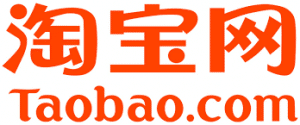Hello and welcome back to TCNESS. This week, China quits fooling around with separating the walled gardens. Its web monsters have framed these walled gardens for quite a long time. Two significant subsidizing adjusts were declared. These adjustments include the recently settled independent driving unicorn Deeproute.ai and quickly developing, cross-line monetary specialist co-op XTransfer.
Destroying the Walls
The Chinese web is scandalously siloed, with a small bunch of “super applications”. Each involving a comfortable, defensive domain that attempts to secure clients and keep opponents out. On Tencent’s WeChat courier. For example, connections to Alibaba’s Taobao commercial center and ByteDance’s Douyin short video administration can’t be seen or even diverted. That is not normal for WhatsApp, Telegram, or Signal that offer well-disposed URL sneak peeks inside talks.
Taobao Online Business
Online business stages fight off rivalry in an unexpected way. Taobao utilizes Alibaba’s associate Alipay as a default installments alternative, excluding its chief adversary WeChat Pay. Tencent-supported JD.com, an opponent to Alibaba, urges its clients to pay through its own installments framework or WeChat Pay.

China’s Ministry of Industry and Information Technology
Be that as it may, changes are in progress. A senior authority from China’s Ministry of Industry and Information Technology answered a question this week. He said, “Ensuring normal access to legal URLs is the basic requirement for developing the internet,”. He added that outlandish blockages of web join “influence clients’ experience, subvert clients’ privileges, and disturb market orders.”
MIIT’s Mission in China
There is some legitimacy in separating outsider connections. With respect to keeping out any semblance of sexual entertainment, deception, and rough substance. Content merchants in China additionally stringently submit to oversight rules, hushing politically touchy conversations. These standards will remain set up. MIIT’s new request is truly to break anticompetitive practices and fade the force of the swelled web monsters.
The call to end computerized walled gardens is essential for MIIT’s mission. It was begun in July, to reestablish “orders” to the Chinese web. While crackdowns on web firms are normal. The spate of new approaches reported as of late — from new information security rules to elevated gaming limitations. It implies Beijing’s goal to check the impact of Chinese web firms of all types.
The cutoff time for online stages to unblock URLs is September 17, the MIIT said prior. Basically, all the significant web organizations have quickly given articulations saying they will solidly complete MIIT’s necessities and assist with advancing the sound improvement of the Chinese web.
Web clients will undoubtedly profit from the destroying of the walled gardens. They will actually want to peruse outsider substance easily on WeChat without exchanging between applications. They can share item interfaces from Taobao directly inside the message carrier as opposed to having their companions duplicate glue a line of obscure codes that Taobao naturally creates for WeChat sharing.
Robotaxi Vision
Deeproute.ai
Independent driving startup Deeproute.ai said for this present week it has shut a $300 million Series B round from financial backers including Alibaba, Jeneration Capital, and Chinese automaker Geely. The valuation of this round was undisclosed.
Termination of Zhou Guang
We’ve seen a great deal of exposure from Pony.ai, WeRide, Momenta, and AutoX yet less Deeproute.ai. That to a limited extent is on the grounds that the organization is moderately youthful, established uniquely in 2019 by Zhou Guang after his fellow benefactors terminated him at the once-encouraging Roadstar.ai in the midst of organization infighting.

Financial backers in Roadstar.ai supposedly considered the termination of Zhou as inconvenient to the startup, which had raised essentially $140 million up to that point, and accordingly looked to break up the business. Apparently Zhou, previously the main researcher at Roadstar, actually orders the trust of certain financial backers to help his reawakened independent driving endeavor.
Robotaxi New Companies in China
Like Pony.ai and WeRide, Deeproute is attempting to work its own robotaxi armadas. While the plan of action gives it power over reams of driving information, it’s examination and money concentrated. Accordingly, significant Chinese robotaxi new companies are altogether taking a gander at quicker business organizations, such as self-driving transports and trucks, to facilitate their monetary pressure.
Cross-border trade boom in China
The other significant subsidizing news this week comes from Shanghai-based XTransfer, which helps little and medium Chinese exporters gather installments from abroad. The Series C round, drove by D1 Partners, pulled in around $140 million and slung Xtransfer’s valuation to more than $1 billion. The returns will go towards item advancement, employment, and worldwide extension.

Established by previous leaders from Ant Group, XTransfer attempts to address a problem area looked at by little and medium exporters: opening and keeping up with ledgers in various nations can be troublesome and expensive. Accordingly, XTransfer fills in as an installments door between its SME client, the party that pays it, and their particular banks.
As of July, XTransfer’s clients had outperformed 150k, a large portion of which are in a central area of China. The organization of more than 1k workers is additionally venturing into Southeast Asia.
While business-to-business send-out is blasting in China. Throughout the planet, Chinese brands straightforwardly sell an ever-increasing number of items to buyers. The absolute best models, as Shein and Anker, utilize an alternate arrangement of installments processors for their direct-to-buyer deals, which will in general be in greater volume yet more modest in normal ticket esteem.

